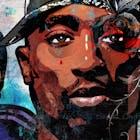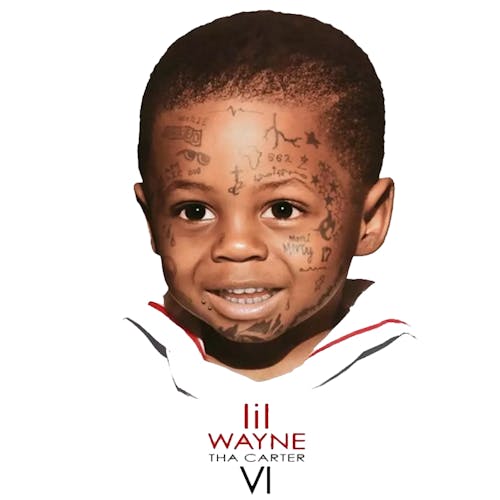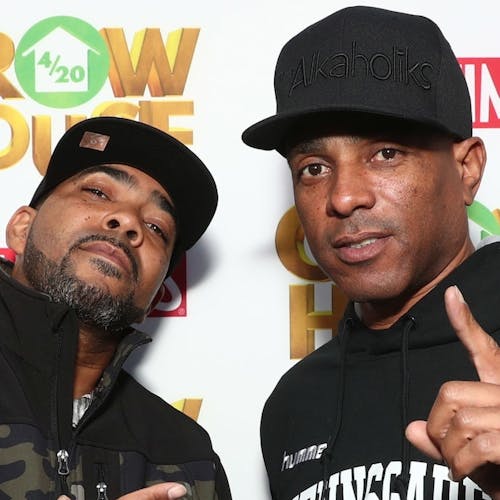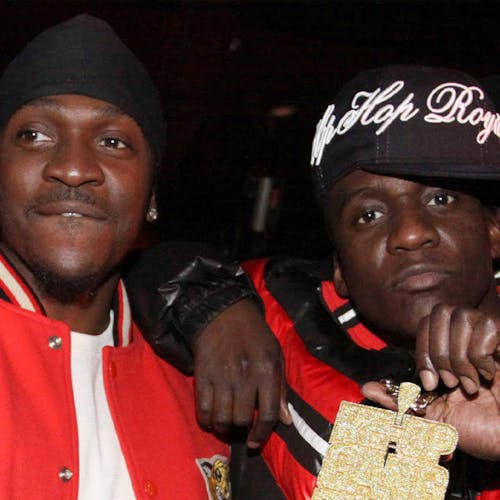
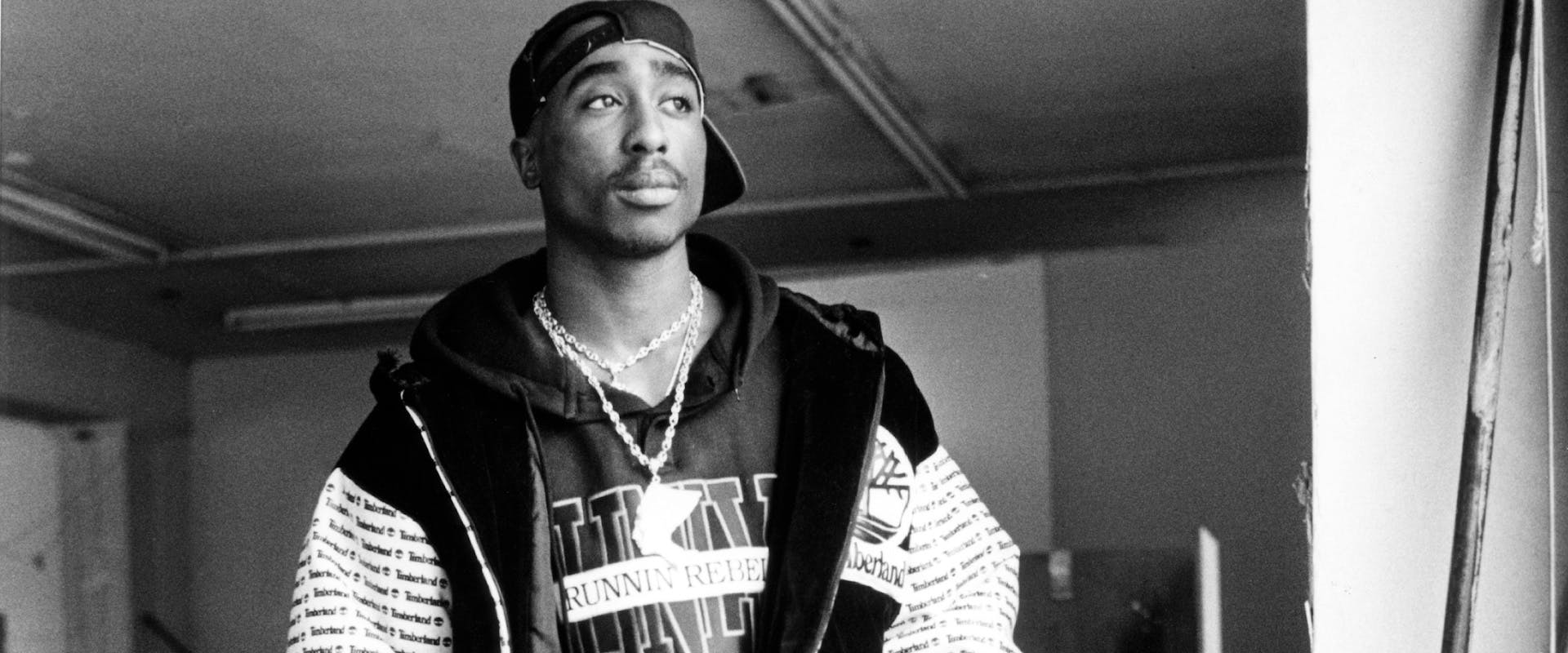
2Pac: 13 of His Most Powerful Political Songs
2Pac: 13 Powerful Political Songs
Published Thu, May 4, 2023 at 12:47 PM EDT
What does it mean to be an impactful artist? Not bestselling, not most popular, but the kind of artist who sets the tempo for what's next, who creates context for others to live in and feel recognized, who presses against boundaries, pushing and re-defining them so that those who come next have the space to explore freely?
2Pac was that kind of artist.
While it's true that he was complex, and it's easy to call his music "contradictory," those labels aren't entirely accurate. 2Pac's deep passion for his community and for Black life is what makes his body work resonate so deeply. The unguarded emotion he poured into his music – the anger and rage, sadness and joy, exasperation and weariness — are what stamps his art.
Pac was about not only exposing oppressive systems, but examining the way those systems worked in Black communities. He openly explored how systemic oppression lingered in the homes, and loomed over the minds of Black folks like himself. He wasn't pontificating about the problems from the outside. He never removed himself from the equation. Instead, he injected himself and his own moral failings into his lyrics. It's what's made his music resonate for decades. His power was in his passion.
Here's a list of 13 his most impactful songs.
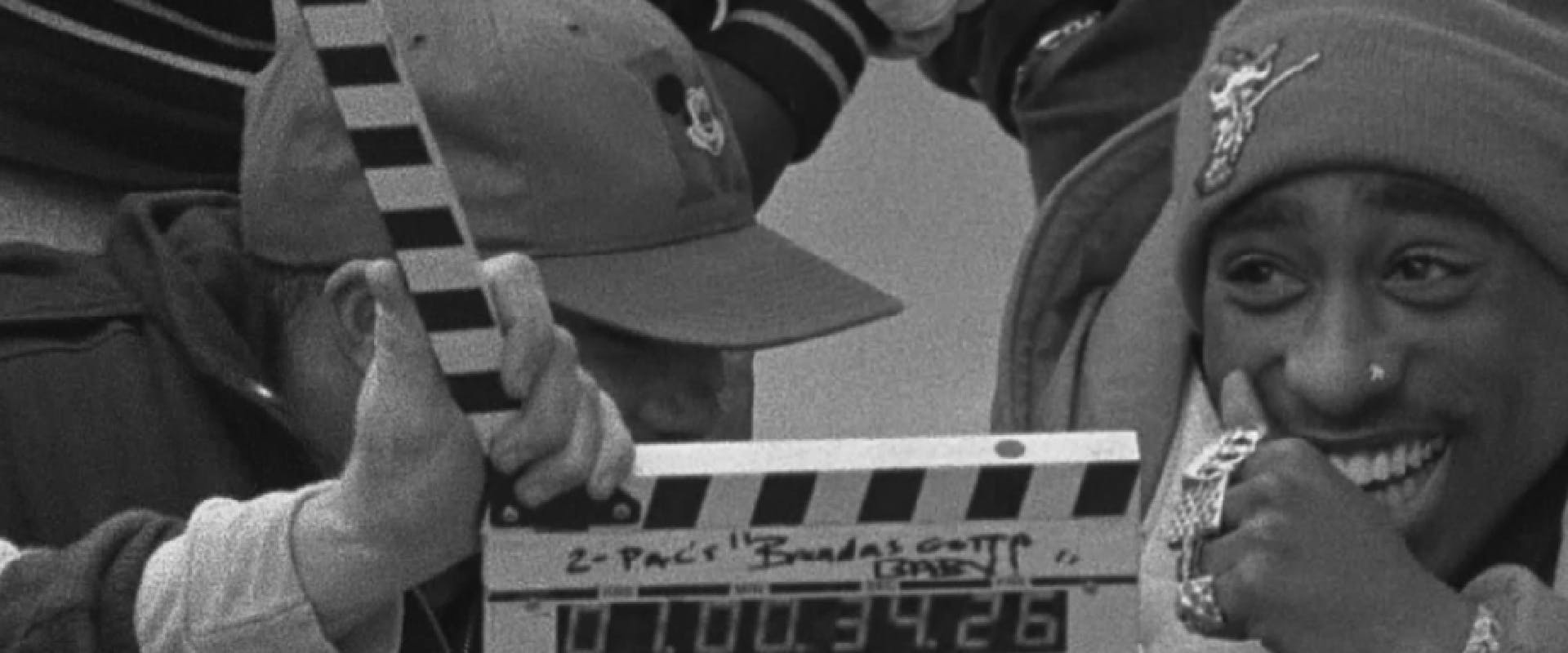

"Who Do You Believe In?" — Better Dayz
Yes, Pac's posthumous releases are sketchy because they lack his creative input and in a lot of cases, were probably throw away verses from his prolific writing phase. But "Who Do You Believe In?" from Better Dayz is an exception. It's powerful and melancholy bordering on sorrowful, and finds Pac in his sweet spot — offering commentary about the pain and oppression inflicted upon his community, and examining the results.
In the first verse, he looks outward, at the infiltration of CIA crack into Black communities: "I see mothers in black, cryin', brothers in packs dyin'/Plus everybody's high, too doped up to ask why... Asked my homie on the block why he strapped, he laughed/Pointed his pistol as the cop car passed, and blast..."
In the second verse, his examination turns inward. "Can't close my eyes, ‘cause all I see is terror/I hate the man in the mirror/‘Cause his reflection makes the pain turn realer..."
DROP YOUR EMAIL
TO STAY IN THE KNOW
"Hellrazor" - R U Still Down?
Another rare posthumous standout, "Hellrazor" is featured on R U Still Down? and it's a shame it wasn't released during his lifetime because it's easily one of the most poignant songs he ever recorded.
Over desperate pianos, Pac rages against the beat – his voice nearly going hoarse at spots as he feverishly rhymes with exasperation, rage, and fear about oppressive traps set for young Black men, the exhaustion from being forced to lie to loved ones in prison just so they can survive on the inside without mentally breaking down, and the traps that come with fame.
In one utterly heartbreaking moment, he cries out for Latasha Harlins, the 15 year-old girl who was shot by a Korean store clerk who accused her of stealing juice:
"Dear Lord if ya hear me, tell me why, a little girl like Latasha, had to die?/She never got to see the bullet, just heard the shot/Her little body couldn't take it, it shook and dropped/And when I saw it on the news how he bucked the girl, killed Latasha/Now I'm screamin' f--- the world."
He finally succumbs to his unbearable truth at the end of the song: "Mama raised a hell raiser, why cry?/That's just life in the ghetto, do or die."
"Pain" - Above the Rim (soundtrack)
A definitive song for Pac fans, the Earl Klugh-sampling "Pain" was originally featured as a bonus track on the soundtrack for Above the Rim, and remains one of Pac's most emotionally affecting outings.
"They'll never take me alive, I'm gettin' high with my four-five/Cocked on these suckas, time to die/Even as a youngster causin' ruckus on the back of the bus/I was a fool all through high school, kickin' up dust/But now I'm labeled as a troublemaker; who can you blame?"
"Death Around the Corner" - Me Against The World
Throughout Me Against the World, a definitive turning-point album in Pac's short life, he talks almost obsessively about death. A notable indication of the desperation and depression that engulfed his life at the time, "Death Around The Corner" is a vivid illustration of a man living on the edge of the world he's created in his mind, and the world he faces in what often feels like a scripted reality.
"So Many Tears" - Me Against the World
Pac delivers one of his most quotable opening lines over Shock G's moody production: "Back in elementary, I thrived on misery/Left me alone I grew up amongst a dyin' breed/Inside my mind couldn't find a place to rest/Until I got that T.H.U.G. Life tatted on my chest."
Once again, he's exploring a few of his favorite topics — spirituality, morality, mortality, oppressive systems and how that intersects with street life.
"Keep Ya Head Up" - Strictly 4 My N.I.G.G.A.Z
"Some say the blacker the berry, the sweeter the juice/I say the darker the flesh and the deeper the roots/I give a holler to my sisters on welfare/Tupac cares, if don't nobody else care" might be the line that best surmises Pac's artistic intent. One of Pac's signature songs, Latasha Harlins is again a focal point of Pac's creative expression — the video is dedicated to her.
"Tupac care, if don't nobody else care" is a promise to his community, and one that echoes across his work to this day.
"Str8 Ballin" - Thug Life Vol 1.
Part what made Pac's art so compelling was that he was young, and at times seemed to struggle with the balance of living and embracing a perspective that sometimes seemed at odds with what was happening in real life, in real time. But Pac's emotive storytelling is at the heart of his most powerful songs. This is the case on what may be the best offering in his massive catalog, "Str8 Ballin." With four verses, he weaves a narrative of desperation and explores the violence bred from years of subjugation over a steady, head-bobbing beat which samples Bootsy Collins.
"What could I do? Pull the trigger or watch my n--- die?" he exasperatedly questions at one point.
Earlier in the song, he seems to answer his own questions in what might be one of his most memorable lines: "And they say: 'how do you survive weighing 165/In a city where the skinny n----s die?'/Tell Mama 'don't cry'/Cause even when they kill me/They can never take the game from a young G."
"Krazy" - Don Killuminati: 7 Day Theory
A quiet gem from his haunting Makaveli album, "Krazy" is nevertheless a defining song on the project. Pac is reflecting on his life, warring with how outside realties have at times inspired him, and at others, deterred him from his path. The balance he has to strike makes him feel "crazy" but also makes his wonderings relatable.
"Last year was a hard one, but life goes on/Bumpin' my head against the wall, learnin' right from wrong//They say my ghetto instrumental detrimental to kids/As if they can't see the misery in which they live," he spits on the opening verse.
By the end of the first verse, he's crying, moved by a letter from his sister: "Dear Mama, don't worry; I'ma watch for snakes/Tell Setchu that I love her, but it's hard today/I got the letter that she sent me, and I cried for weeks/This what came out when I tried to speak."
"Brenda's Got A Baby" - 2Pacalypse Now
The standout on 1991's 2Pacalypse Now, the real-life story Pac raps about on "Brenda's..." is memorable and tragic.
"Now Brenda really never knew her moms and her dad was a junkie--puttin' death to his arms/It's sad 'cause I bet Brenda doesn't even know/Just 'cause your in the ghetto doesn't mean you can't grow..."
"Starin' Through My Rearview" - Gang Related Soundtrack
An offering that feels like a clear example of the sonic direction Pac was headed in had he lived, Pac is once again contemplating the impact of the prison industrial complex.
"Now, I was raised as a young Black male/ In order to get paid, forced to make crack sales/ Caught a nigga so they send me to these overpacked jails/ In the cell, countin' days in this livin' Black hell..."
"Holler If Ya Hear Me," Strictly 4 My N.I.G.G.A.Z.
Recorded in the aftermath of the 1992 L.A. riots, Pac offers another rallying cry: "To my brothers on the block better stay strapped, Black/And accept no substitutes/I bring truth to the youth tear the roof off the whole school/Oh no, I won't turn the other cheek/In case ya can't see, that's why we burned the other week..."
"White Man'z World" - Don Killuminati: 7 Day Theory
Pac talks about what it's like being "born Black in this white man's world" and it's both affirming and insightful.
"Help me raise my black nation, reparations are due...."
From lamenting the industrial prison complex, to shouting out political prisoners like Geronimo Pratt and Mumia Abu-Jamal, Pac's freedom message was clear-eyed.
"Outlaw" - Me Against The World
Pac's illustrative storytelling is clear on "Outlaw," making it one of his most poignant, heartbreaking offerings.
He sets the tone at the beginning of the track, when he questions a young boy about what he wants to be when he grows up. "I wanna be a muthaf-ckin outlaw," the kid promptly, proudly responds. Pac questions how old he is, and the kid heartbreakingly replies, "I"m 11..."
His answer echoes as Pac opens his verse, and proceeds to describe in detail how young boys become young men with a bleak outlook on life, and how that outlook too often leads to death and violence.
